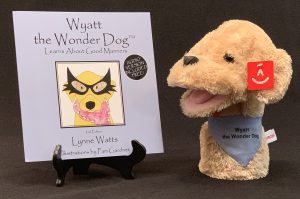Stages of Development for Preschool Boys and Girls
Stages of Development for Boys and Girls
As parents and educators, we all know that boys and girls show up differently in life. In a recent video series Sissy Goff, M.Ed., LPC-MHSP and David Thomas, L.M.S.W. from Daystar Counseling Ministries, identify the brain research which results in behavioral differences and offer recommendations for how to best encourage and support children in the early developmental stages of the preschool years. Here is a summary of their presentation:
Research shows that boys begin life with a very different brain than girls. The female brain secretes more serotonin which means girls typically will have more impulse control. In addition, female frontal lobes grow faster and are generally more actively engaged which means girls tend to think things through first and then act, while boys tend to act first and then (perhaps) think. Finally the brain stem in the male has more spinal fluid which also results in more physical activity, especially if they are overstimulated. Due to all these factors, Thomas describes boys, ages 0-4 years old as naturally
- active
- aggressive
- curious
Consequently, preschool boys need lots of opportunities to move their bodies, be physical and explore. They also need coaching to understand that their tendency to express all emotions in a rather aggressive way is not going to be understood or appreciated by others. For instance, tackling their mom with a huge bear hug is probably not going to be reciprocated in kind while engaging in rowdy play with their brother will be. Finally, this is an age of discovery and boys need lots of chances to investigate and try out new things.
Thomas recommends that parents and educators who are involved with preschool age boys, provide:
- boundaries,
- open space with lots of opportunities for movement
- consistency.
When instructing boys, instead of hammering them with lots of directions and verbal instructions, he recommends a full sensory approach that is simple and direct. This includes incorporating touch such as a hand on the shoulder, repeating the child’s name, pointing to what and where things need to happen and giving only one direction or instruction at a time. According to Thomas, many adults spend too much time with boys trying to explain things in detail, when a simple and direct statement will do. Boys in general are kinesthetic, tactile and visual learners not auditory learners.
According to Sissy Goff, M.Ed., LPC-MHSP, three words to describe girls ages 0-4, are:
- relational
- caretaking
- emotional
For preschool girls, this is an age of wonder. Girls have a rapidly developing occipital lobe and are busy taking in sensory data which they then use to construct their understanding of the world around them. Like boys, girls are curious and like to learn and explore but for girls everything comes back to relationships. Girls are better at reading emotions from facial expressions and more attuned to human voices, even at a very early age. They talk at an earlier age, are more verbal and have a larger vocabulary. Girls are naturally more nurturing due to higher levels of oxytocin in their bodies.
Goff recommends that parents and educators who are involved with preschool age girls, provide:
- boundaries,
- bravery- they need to learn to try new things and make mistakes
- delight in who they are–they need to be acknowledged as worthy and worthwhile just as they are
Understanding the natural differences between boy and girls even at a very young age, can mean that adults provide an environment that takes into account their specific social emotional needs while helping them develop a growth mindset that will serve them well as they grow.
Wyatt Learns about Good Manners

Wyatt is always wondering about something and lately it is how to get his friend, Max to change his bossy ways. What can he do? Join Wyatt as he considers some rather unusual options until he finally discovers that a heart to heart talk with Max can create a new friendship with an old friend.
Have you ever had a friend that did some things that you disagreed with? Wyatt does and he doesn’t know what to do about it. Join Wyatt as he learns that being honest with his friend is the best and only way to solve the problem. A great story!
~Lynn Hughes M.Ed. professional school counselor, Ball Ground Elementary

The Elementary School Counselor’s book of Leadership Lessons
This book is a treasure trove of twenty-eight lesson plans based on Stephen Covey’s seven habits of highly successful people, all designed to nurture tomorrow’s leaders. Each lesson includes a bibliography, discussion questions, activities, ASCA standards and a pretest/post-test. Guaranteed to develop critical thinking skills, growth mindset and social emotional learning, every elementary school counselor will love adding this to their tool kit.
